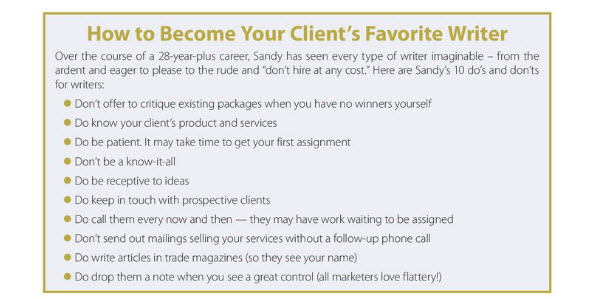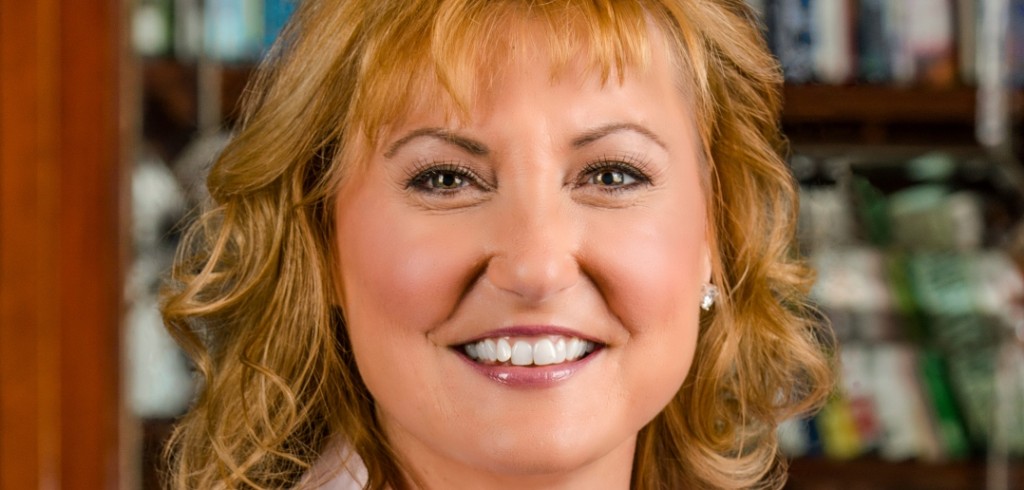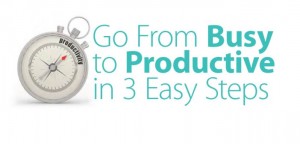“The biggest gift you can give yourself is when opportunities come, take them. You can always figure things out along the way, but opportunities don’t come around that often.”
— Sandy Franks, Author and Publisher
Sandy Franks is hands-down one of the nicest people you’ll ever meet. But along with that, she has a deep reservoir of knowledge and insight into the businesses of writing, marketing, and publishing.
Much of Sandy’s expertise was cultivated from 28 years of in-the-trenches work at Agora Inc., one of the world’s most successful and dynamic consumer newsletter publishers. While there, Sandy worked alongside several industry giants. She also became an industry expert in her own right, thanks to hard work and a healthy quest to constantly learn and improve. That included diligent research into the history of prosperity, which resulted in her co-authoring two books: Barbarians of Wealth: Protecting Yourself from Today’s Financial Attilas, and Barbarians of Oil: How the World’s Oil Addiction Threatens Global Prosperity and Four Investments to Protect Your Wealth.
Sandy is also a well-respected crusader for women’s rights to wealth. As founder of The Women’s Financial Alliance and publisher of The Women’s Financial Edge, Sandy focuses much of her effort now on helping women become financially secure.
I connected with Sandy on a crisp winter day from her home in Baltimore. Enjoy the resulting conversation, with insider secrets on how to be a writer clients clamor to hire, time management for successful book writing, and tips to help you sail past the biggest obstacle to success for writers.
Was writing always a hobby, or something you fell into?
 I fell into it. After high school, I had this crazy idea I could move to New York and be a model. Of course, I quickly realized that wasn’t realistic. Instead, I worked in the banking industry for several years. I wasn’t happy with that choice and then switched to public relations.
I fell into it. After high school, I had this crazy idea I could move to New York and be a model. Of course, I quickly realized that wasn’t realistic. Instead, I worked in the banking industry for several years. I wasn’t happy with that choice and then switched to public relations.
I worked in the PR department of a major hospital. I got to write PR articles for local newspapers, design brochures, and put together health events. I really enjoyed all the writing assignments. By chance, I saw an ad in the newspaper about working for a small publishing company.
That company was Agora, Inc. and it’s no longer small. It’s now the world’s largest privately-owned newsletter publisher. My initial position was as a marketing assistant where I did print buying and coordinated all our direct mail efforts. When the owner, Bill Bonner, fired his right-hand person, he pulled me into the office the next day and said, “You can take over some of her duties, such as putting a mailing list plan together right?” Truth is, I had never done it but said yes anyway, thinking I could figure things out along the way.
Learning on your feet! Did you figure out what was needed?
I did. That taught me a lot about the metrics of the publishing business. Then when Mark Ford came on board as a consultant, I got to work closely with him on copy. Bill was also involved in copy, but more so in the editorial. Bill has tough standards when it comes to editorial quality. He’s probably the best writer I’ve ever met, hands-down.
I learned so much from both of them. It was an amazing experience. As the company grew in size, so did the need for people who understood the marketing, business, and editorial aspects of publishing. Since I had that blend of skills, I was asked by Bill and Mark to head up one of company’s financial divisions.
I knew I was in the right business because none of it ever felt like work. I love coming up with product ideas, figuring out the right way to position them, working with copywriters … all of it.
You’ve worked with some notable authors — Mark Ford, Addison Wiggin, Larry Crane, William Bonner … Do they all share a common success trait?
While each one is very different, with widely different personalities, I would say the traits they share are: Passion for what they do, not afraid of taking risks (I should say calculated risks), and being idea driven. Bill has a famous saying, “We are not in the publishing business; we are in the idea business.”
An important distinction. Your publishing career spans a variety of different fields, including financial, health, and business start-up. Which field do you like best?
It’s ironic, business start-up and home study courses are my favorite, but I spent most of my publishing career on the financial newsletter side. I didn’t know very much about the stock market or investing when I first started, but I learned by asking lots of questions, and reading books. Eventually I could hold conversations with financial experts. I even got to write two books on economics and investing.
But business start-up, helping people figure out careers … I always enjoyed it the most because you see the difference you make in someone’s life, such as when a customer writes a letter thanking you for helping them start a business or learn a new skill.
You can’t really see that on the financial side.
As someone who hires copywriters every day and has for years, what are some common mistakes you see?
Everyone will share samples with you and while those are good to see, it doesn’t really tell you a whole lot about the person.
Actually talking in person or on the phone is better. You get a real sense of what they’ve done, how they approach projects, ideas they have, and whether they’re able to take direction.
If a writer tells me they’ve written for a company where I know people, I will call those people for references to see how much of the copy was actually written by the person.
The biggest mistake I see is that most people don’t understand the art of copywriting takes practice and patience. Years of experience matter. I see it now with young writers who quote rules they’ve heard on how to do certain things. Yes, there are rules, but knowing when, how, and why to use them matters … even knowing when to break them. That only comes from experience.
What should those writers do instead?
I would tell writers starting out to take direction well, listen, and learn. Intensely study what is working, dissecting it down for format, formula, copy claims, and promises. Your time as a top-tier copywriter will come.
You’ve co-authored two popular books, done while maintaining your full-time job as an editor and publisher and parent. What was your secret for fitting it all in?
 I have a few secrets … like having a co-author. I knew running my publishing business, along with taking care of my children was a lot and if I had to write the entire book myself, I don’t think I could have done it … at least not in the time frame needed. So I asked Sara Nunnally, one of my financial editors who herself was a great writer but also a research fanatic, to work with me on it.
I have a few secrets … like having a co-author. I knew running my publishing business, along with taking care of my children was a lot and if I had to write the entire book myself, I don’t think I could have done it … at least not in the time frame needed. So I asked Sara Nunnally, one of my financial editors who herself was a great writer but also a research fanatic, to work with me on it.
I also got a lot of support from my family. They knew I had a deadline, so the days I locked myself away in my home office to write, they let me be.
Schedule and word count were important as well. For both books, the contract spelled out the page count for each book. So I broke it down into chunks. That meant I had to write a certain amount of words each day to stay on schedule.
How did you stay motivated and manage your time?
I used every bit of spare time I could find. I got up early on weekends, around 6 a.m. and just wrote until I couldn’t write any more. Sometimes I would stay up past midnight. But I took breaks, too, because I didn’t want to burn out and not be able to complete the book.
I also had a lot of passion and excitement to get me through it. It’s very thrilling to hear that a major book publisher has accepted your book idea. That helps drive you to get it done. And passion for the subjects I was writing on, which basically were exposés of Wall Street big banks for the first book, and of Big Oil companies on the second. I loved the research.
I kept uncovering new things all of the time. The biggest problem was deciding what to include in the book.
Can you share any tips about how to successfully work with a co-author?
It has to be someone you trust. Someone who thinks like you do. Someone with a strong work ethic (hence, the ability to meet deadlines).
What I didn’t realize is that I would be named lead writer, which meant that whatever my co-author Sara wrote, I would have to blend our two writing styles together so there was one voice in the book. That was just extra work I hadn’t figured in.
But because I knew her style, it wasn’t that difficult to do.
We divided up who wrote certain chapters. We also talked often throughout the process.
You spent 28 years with direct mail giant Agora, watching the company go from startup to a multi-million dollar business. What made Agora so successful?
It’s the people who make the company successful. Most of the publishers in charge of divisions and higher-level marketing personnel have an entrepreneurial spirit.
They test different elements often and pay attention to details. When they find something that works, they maximize (and monetize) quickly. They ask lots of questions and challenge each other. They’re learning all of the time.
In fact, that’s the way Bill built the company — giving people the freedom to learn. He would tell us it’s okay to fail, but fail quickly and cheaply. That was is his way of saying it was good to learn things. He wanted us to figure out what worked and what didn’t.
So creative freedom was really key. What else?
Thinking outside the box and finding “work-around” solutions is also another quality Bill and Mark instilled in all of us. For example, when the Internet came about, we were worried it would have a negative impact on the newsletter industry. People could now get information from all sources and we were concerned about losing subscribers.
But Bill had the idea of writing to readers via email to create a bond with readers. We figured keeping in touch with readers through email would at least maintain or increase retention rates. The only way to know if that was true, was to write to readers regularly. So he wrote every day. Readers loved it; theywrote back with comments and shared their thoughts.
Since his e-letter was being well received, the next step was to test ads in the daily e-letter. That was a breakthrough. Money was pouring in every day.
I remember Bill being criticized by fellow CEOs of other publishing companies for spending so much of his time writing. Nowadays, most publishing companies have followed his lead and publish daily e-letters.
How can a freelance writer apply these lessons to his or her writing business?
I think it’s important to never stop learning. If you want know something, ask. If there is no one in your company who can answer your question, then find someone who can, even if that means stepping outside of your current organization. What I’ve learned is that people like to share information.
Pay attention to details. Practice your craft of writing. Think outside the box.
What motivated you to launch The Women’s Financial Alliance?
It was really my husband, Mark’s idea. His mother and father had a traditional marriage where his dad took care of all the financial and investment decisions and paid all the bills. When Mark’s father passed away, his mom didn’t know what to do. Luckily, she had children to help her.
But that experience made my husband wonder how many other women have had a similar situation. I researched more about women and money and found out there are lots of women who aren’t comfortable with financial matters.
Since I was able to educate myself on financial matters, I knew other women could learn it too.
That’s inspiring. It’s all a side business, right?
I call it my passion project. It’s my spare time project. It provides a healthy amount of extra monthly income with little effort, but it could bring in even more. Right now, I just don’t have the time to focus on it 100%. I’m committed to it because my husband and I see it as legacy business — something to give to my children, especially my daughter Rachael.
She’s a great marketer. During high school, I let her intern in my division at Agora. That gave her a great marketing foundation. And she went to NYU for marketing. She’s great with social media marketing. She’s also a great writer, able to paint pictures with her words. She entered essay contests throughout her school years and won many.
It would be a great business to pass on to her. I don’t know if my son Zac would help. He’s in law enforcement and loves it.
Drawing from your experience with The Women’s Financial Alliance (WFA), do you have any advice or warnings for women writers and freelancers in particular?
There aren’t many female copywriters specializing in the financial newsletter industry. I would love to see that change. I think the reason there are so few is similar to what I’ve seen with the WFA … that women see financial matters as too challenging. But again, it’s learnable.
For female freelance writers, invest in yourself. Like a business reinvests capital into research or creating new products, grow your knowledge base. If there are programs and courses that will increase your writing skills or marketing skills, invest in them.
Find fellow writers you can talk with regularly to pass ideas along. There’s nothing wrong with helping each other out.
Any general tips you can share about attaining financial independence and freedom?
 Get good at marketing yourself. While Agora has some of the highest editorial standards, it’s their attention to marketing details that have really helped drive their success.
Get good at marketing yourself. While Agora has some of the highest editorial standards, it’s their attention to marketing details that have really helped drive their success.
No matter how good you are at writing, you have to market yourself so you’ll have clients.
For gaining financial independence and freedom, with the WFA, I have three principles: knowledge gives you choices, choices give you independence, and independence gives you freedom.
As for money … always put a portion of money you earn into savings or investments that don’t carry too many risks. I like stocks that pay dividends. I like alternative assets, too.
I don’t like to take risks with my money. I’m conservative with how I invest it because I see it as long-term, not short-term. I don’t care if the stock I invest in didn’t return 300% (those are rare). I only invest in what I understand and things I feel good about.
Let’s switch gears for a minute. What do you like about life in Baltimore? Is there anywhere else you hope to live someday?
I grew up in Baltimore. When my husband was a young child, he livd in many states (his Dad was a Captain in the Marines). But most of his adult life has been here in Maryland. Most of our family is here, so that’s why we are here. But we’re empty nesters now. Our children have moved out. We could move anywhere and talked recently about downsizing. We’re making a list of possible places to move … maybe Colorado, or other places out west.
But if our children have kids, well, then we may stay here because we’d want to see our grandchildren often.
What are your favorite fiction and non-fiction books?
I love murder mystery books.
But I also really love biographical history. I’m a nerd with that stuff. For example, when we traveled to France, I was intrigued with the Bourbon (King Louis) dynasty. I read every book I could find on the royal family. I know a lot about Kind Louis and Marie Antoinette.
I’ve also read a lot of books on the Pharaohs of Egypt, particularly Cleopatra.
I’ve read books on US Presidents such as Lincoln and Kennedy.
If you could have free, unlimited service for five years from an extremely good cook, chauffeur, or masseuse, which would you choose?
A chauffeur … I hate driving, I hate traffic.
From your vantage point, what’s the single biggest obstacle that holds new writers back from succeeding at the writer’s life?
FEAR. Look, when Bill fired his right-hand person and asked if I could put a mail plan together, I could have easily said no. Although I was nervous and afraid because I had never done them before, I didn’t let it stop me.
I didn’t let fear stop me from submitting book ideas to John Wiley & Sons
For me, the biggest gift you can give yourself is when opportunities come, take them. You can always figure things out along the way, but opportunities don’t always come around.







